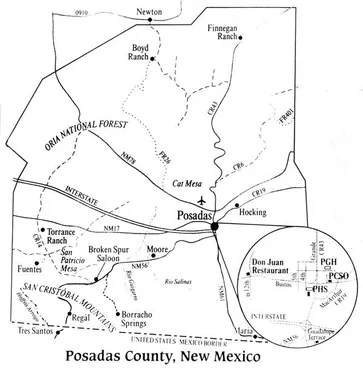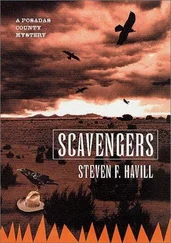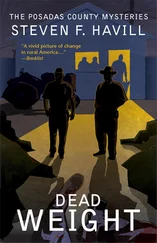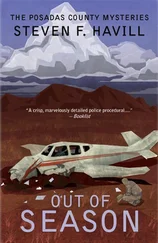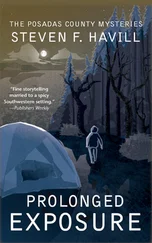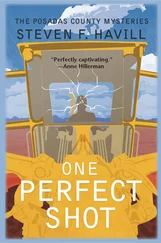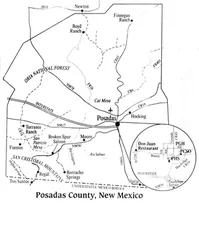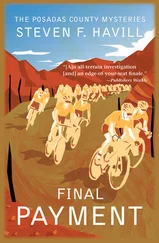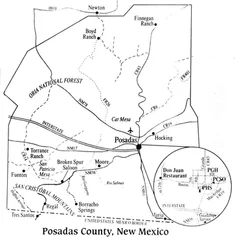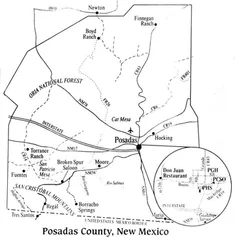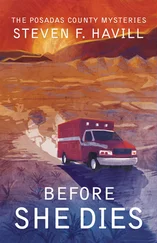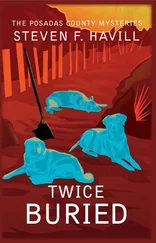Steven Havill - Bag Limit
Здесь есть возможность читать онлайн «Steven Havill - Bag Limit» весь текст электронной книги совершенно бесплатно (целиком полную версию без сокращений). В некоторых случаях можно слушать аудио, скачать через торрент в формате fb2 и присутствует краткое содержание. Год выпуска: 2011, ISBN: 2011, Издательство: Poisoned Pen Press, Жанр: Полицейский детектив, на английском языке. Описание произведения, (предисловие) а так же отзывы посетителей доступны на портале библиотеки ЛибКат.
- Название:Bag Limit
- Автор:
- Издательство:Poisoned Pen Press
- Жанр:
- Год:2011
- ISBN:978-1-61595-073-7
- Рейтинг книги:3 / 5. Голосов: 1
-
Избранное:Добавить в избранное
- Отзывы:
-
Ваша оценка:
- 60
- 1
- 2
- 3
- 4
- 5
Bag Limit: краткое содержание, описание и аннотация
Предлагаем к чтению аннотацию, описание, краткое содержание или предисловие (зависит от того, что написал сам автор книги «Bag Limit»). Если вы не нашли необходимую информацию о книге — напишите в комментариях, мы постараемся отыскать её.
Bag Limit — читать онлайн бесплатно полную книгу (весь текст) целиком
Ниже представлен текст книги, разбитый по страницам. Система сохранения места последней прочитанной страницы, позволяет с удобством читать онлайн бесплатно книгу «Bag Limit», без необходимости каждый раз заново искать на чём Вы остановились. Поставьте закладку, и сможете в любой момент перейти на страницу, на которой закончили чтение.
Интервал:
Закладка:
There was no way to guess where the path went just by guesswork. To the uninitiated, the road would have to levitate straight up, but the original bulldozer driver had been adept at finding the various slices and dices that wound the road up the hill.
“Three ten, three oh eight. You’re coming up on us in about a quarter mile.”
I had just enough time to consider the brake pedal before I went around a final rock outcropping and saw a collection of county vehicles. As I slid to a stop, I quickly counted heads. Linda Real was sitting in her own Jeep, and the other four marked units were all nosed into the same collection of trash cans that the Forest Service provided, and that no one apparently used.
Off to the side was the white Durango with Texas plates that Scott Gutierrez had been driving when my son and I had crossed his tracks in Regal during the early morning hours on Sunday. To the left of it was one of those small pop-up campers. If it had been used the night before, it wasn’t obvious. All the gear was still neatly stowed.
What must have been one giant, spectacular crash eons before, had left a series of boulders that provided a barricade for the springs. At one time, water had even pooled beneath the boulders’ knees, but that had dried up sometime in the 1880s. The rocks afforded adequate cover for us, protection from someone who might be up the hill and trigger-happy.
I saw Torrez and Pasquale standing together with New Mexico Department of Game and Fish officer Doug Posey and another young man in civilian clothes. Sergeant Howard Bishop was in the process of plodding toward them from his unit, a rolled-up map in hand. Torrez was talking on the phone.
Jackie Taber’s binoculars were on the passenger seat, and I scooped them up as I slid out of the vehicle. The mountainside loomed above us, massive and silent.
“Sir,” Torrez said as I approached, “I got Walsh’s mobile number, but it’s busy. I’m seeing if the cellular operator can patch me through as a third party.”
“Any sign of anybody up there?” I scanned the rocks with the binoculars.
“No, sir.”
I continued my sweep across the mountainside with the binoculars. “Do we know anything about this situation other than what we heard on the initial phone contact?”
“No, sir.” Torrez dropped the phone from his ear and regarded it with impatience. “Nothing.”
“And nobody’s come out since that call?”
“Not as far as we know.”
“We came in from the west,” Posey said. His was the slow, measured cadence of West Texas. “By the way, sir, this is Officer Wade Kearns.”
I shook hands with the young critter cop, then stood with my hands on my hips, gazing up at the mountainslope. “Well, this is a hell of a deal,” I said.
Torrez nodded. “If he was calling from a spot just beyond the springs, then he should be just above these rocks. He should have heard us approach.”
“Give him a holler,” I said.
Torrez nodded and slipped into his unit. The public address system was spectacularly loud, and all of us stared uphill as if we could see the undersheriff’s words bouncing off the rocks.
“Mr. Walsh? James Walsh? This is the Posadas County Sheriff’s Department. Can you hear us?”
We waited, straining. There was no breeze to tickle the vegetation, just the sound of our own pulses in our ears.
Torrez repeated the message, waited a minute, then said, “Scott Gutierrez, can you hear me? This is Undersheriff Robert Torrez. Can you hear me?”
The hills remained silent.
Torrez tossed the mike onto the seat of his unit. “We need to go on up,” he said.
Chapter Forty-four
I knew that the undersheriff was right…we couldn’t sit around the campfire drinking coffee until someone decided to roll down off the mountain. Still, we held none of the advantages. The 911 call had involved three people, and every one of them had reason to be armed with a high-powered rifle that could fire a round farther than any of us could see on the best of days.
There was every possibility that our movements were being watched at that moment through a nice, clear telescopic sight.
Sergeant Howard Bishop, who normally spent his days managing the department’s civil caseload, looked up the steep, rugged canyon and shook his head. “You’re shitting me, right?” he mumbled.
“Channel three,” Torrez said. He checked his handheld radio and slipped it back on his belt. “Tom and Wade, go right. I’ll go left with Doug. Howard, why don’t you follow the water course right up the middle.”
Bishop nodded without enthusiasm. If we had to climb all the way to the summit, where the view of northern Mexico was terrific on a clear day, that would mean nearly three miles-all of it steep, all of it treacherous. Not all of it would be uphill. Like an old blanket dumped on the floor, the terrain was a series of folded saddlebacks, each one progressively higher and steeper until it reached the final ridge. It was a matter of hiking up, then down, then up still higher, then down, then up again.
He patted his ample belly as he regarded the task. No one had thought to bring a cooler of beer, either.
I lagged even farther behind, in no hurry to have my heart explode trying to solve a family dispute that-considering the silence of the mountain-had already been resolved one way or another.
Ten minutes later, I had ambled my way far enough up the hill, a hundred yards or so, that I could look back and see the road that snaked into Borracho Springs from the state highway. It tracked about as straight as a snarled ball of grocer’s string.
I found a comfortable boulder and leaned my back against it. By supporting my shoulders, I could hold the binoculars still. I swept the hillside, finding each officer in turn. Tom Pasquale and Wade Kearns were already approaching the crest of the first saddleback.
Off to the left, I saw Robert Torrez striding around a jumble of boulders about the size of a Motel 6. Ahead of him was a promontory of bare granite that would afford a commanding view. Doug Posey had split off, circling the rock motel in the opposite direction.
Howard Bishop plodded a hundred yards ahead of me. He stopped, hands on both hips, considering a route.
“Sergeant Bishop.” It was Tom Pasquale’s voice on the radio. I took mine off my belt and turned the volume up.
“Go ahead,” Howard said. He was breathing hard.
I swung the binoculars to the right and picked up Pasquale. He was standing under a gnarled juniper, his own glasses glued to his eyes. He was looking downhill toward Bishop.
“About fifty yards in front of you at eleven o’clock,” Pasquale said. “There’s a man sitting under a grove of scrub oak.”
I swung to my left, but the terrain blocked my view from below. Bishop hadn’t moved.
“How clearly can you see him?” he asked.
“Full view,” Pasquale said. I turned to watch him again, and saw that the young deputy had dropped to one knee to steady his hands. In a moment, Wade Kearns appeared beside him.
“So what’s he doing?” Bishop said. He hadn’t moved and I’m sure didn’t relish being a big, slow-moving target.
“Nothing. I can’t see his face, though. He’s wearing a red vest over blue. Blue jeans. There’s a rifle on the ground beside him.”
“He doesn’t have it in his hands?”
“Negative. His arms are folded.”
“Howard, we’re headed that way,” Torrez said. “Tom, you stay right where you are and keep us posted, all right? If he makes any move at all, you let us know.”
“Yes, sir. He’s covered.” Pasquale was being literal. He had replaced his binoculars with the scoped rifle that had been slung over his shoulder. Kearns had left the position and was working his way east toward Bishop.
Читать дальшеИнтервал:
Закладка:
Похожие книги на «Bag Limit»
Представляем Вашему вниманию похожие книги на «Bag Limit» списком для выбора. Мы отобрали схожую по названию и смыслу литературу в надежде предоставить читателям больше вариантов отыскать новые, интересные, ещё непрочитанные произведения.
Обсуждение, отзывы о книге «Bag Limit» и просто собственные мнения читателей. Оставьте ваши комментарии, напишите, что Вы думаете о произведении, его смысле или главных героях. Укажите что конкретно понравилось, а что нет, и почему Вы так считаете.
